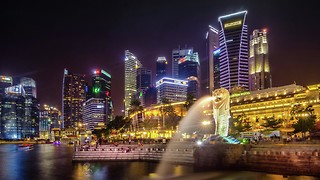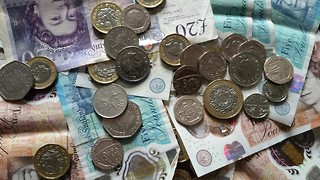To the manner sworn: or How I learned to stop worrying and love the F-bomb
Writing in his first column, Will Hall fears that the beauty of swearing is under threat from irreverent overuse

Ah, swearing.
Profanity. Expletives. Curses. That noble elect of words which we venerate as somehow ruder, lewder, naughtier. And just as the swear word itself carries an intrinsic roguishness – a rakish charm which both appals and appeals – so it bestows such glamour on its user. The swearer being rude, yes, but also unafraid, rebellious, sexy.
Or at least, so it once was. For swearing has, of late, lost its potency. Gone are the days when such monuments to malice would elicit a shocked gasp. I doubt even Mrs Whitehouse, were she alive today, would bat a horn-rimmed eyelid at the four-letter frolics that go on post-watershed. For better or worse, rudery has triumphed over prudery.
I say this as a keen swearer myself. I confess that swear words fly out of my mouth like tennis balls from one of those tennis-ball-firing machines. Not angrily, or ecstatically, but because I now realise something I once didn’t – I can. Like many, I was told when I was young – by parents, teachers, Newsround (all the great sources of childhood wisdom) – that swearing is bad. I don’t think there was an awful lot of explanation behind this, but the received wisdom was that "cake” was an okay word to say and “fuck” wasn’t.
As I went to school, I learned even more about this libretto of sin which streaked through the English language like a vein through a Roquefort. Apparently, so older, wiser boys told me, there was a hierarchy. Anything beginning with F or C was practically blasphemous and would require a ritual cleansing if you so much as thought of them. Shit was pretty middle-ground: definitely a swear-word, no question, but slightly more on the venial than mortal side of the fence. (I was relieved to hear this, as I had once heard my mother say it when she cut her finger cooking, and was worried about the repercussions of her slip-up.) Well, I say middle-ground; we were only nine and it was still pretty much The Rudest Thing Ever.
Then, lower-down the food chain, were the more entry-level swear words. Bloody an epitome of this, often only truly rude when coupled with another, equally devastating noun; ‘hell’ being a classic, but some of the more posey, affected students would plump for the rather charming ‘Nora’. (Incidentally, I learned of its adjectival status the hard way: in a bold move, when I was about 10, during a playground argument with Thomas Fielding, I played my trump card, declaring: “You know what Tom, at least I’m not such a Bloody!” It didn’t have the resounding impact I’d hoped.) Bitch was a swear word when used as a noun, but as a description was less noteworthy. Crap didn’t even get a look-in, frankly, we just felt sorry for the poor guy who spent his whole life inventing the loo only for people to sully his name with it.
It was hardly our fault we were so adept at building our vulgar vocab. Rather than subtly hide them in the melee of other words beyond our pre-pubescent linguistic capabilities, society kindly highlighted them with all manner of symbols and bleeps. Even now, whenever I read something, my heart slightly races at the sight of a cluster of asterisks, winking at me silently from the page.
Then one day – I was probably 12 or 13 – I said one of the bad words out loud, and… nothing happened. It was at that moment I realised that swearing clearly didn’t matter. I said it again, and again it was greeted with profound indifference. I think I went a bit mad after that, and I apologise to those I met in the late noughties, and caught rather by surprise.
Sometimes, at night, I mourn the loss of those prelapsarian days when the air wasn’t cerulean with filth, but by and large I think it’s a good thing that we’re passed caring. In my fallen state, I collect new swearwords like a philatelist collects stamps; Hugh Grant’s “fuckety-fuck” in Four Weddings is a personal favourite, although I never use it myself, out of respect to the great man. And I have a rule to never use them in anger or frustration; that would be like using your grandmother’s best china to play cricket.
However, I can’t help but feel maybe there’s a hidden damage here. If we keep effing and blinding at the rate we’re going, we might destroy the magic of the swear word. Obviously there’s still the big one – we all know that one – but it won’t be long before it too becomes normalised by our profane progression. We’ll lose the creativity of minced oaths (Gadzooks, Wodehouse’s preferred exclamation, derives from “God’s hooks”, referring to the nails on the cross) and I worry that my kids will never know that when I stub my toe and shout “Sugar!” I am trying to preserve their innocence, not yearning for sucrose. Moreover, if swear words become normal, then they’re no longer swear words – just words. Nothing to bleep out, nothing to asterisk away, nothing to laugh at behind the bikeshed, and that’s a shame for all of us.
So maybe, actually, we really should watch our tongues. Maybe the charm of the swear word lies within its scarcity, and we are duty bound to put a fence up and charge an entrance fee – or else erect a blue plaque. I’m not saying we abolish them entirely – where’s the fun in that? – but rather we ratchet up our prudishness just a notch. Which begs the question, then, when should you swear? Well, I’ll leave that one to you. Just don’t fuck it up.
 News / Students form new left-wing society in criticism of CULC3 September 2025
News / Students form new left-wing society in criticism of CULC3 September 2025 News / Tompkins Table 2025: Trinity widens gap on Christ’s19 August 2025
News / Tompkins Table 2025: Trinity widens gap on Christ’s19 August 2025 News / Cambridge’s tallest building restored to former glory1 September 2025
News / Cambridge’s tallest building restored to former glory1 September 2025 News / Council rejects Wolfson’s planned expansion28 August 2025
News / Council rejects Wolfson’s planned expansion28 August 2025 Interviews / GK Barry’s journey from Revs to Reality TV31 August 2025
Interviews / GK Barry’s journey from Revs to Reality TV31 August 2025








